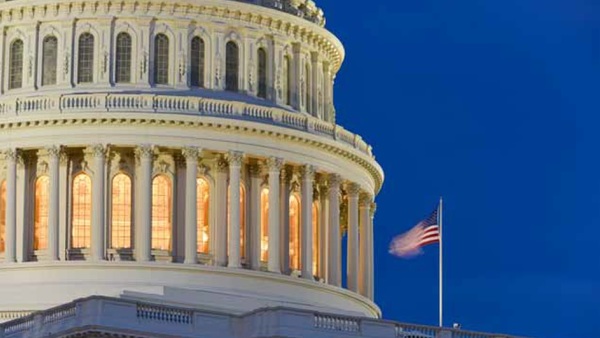
House Financial Services Chairman Jeb Hensarling (R-Texas) would retain the three-member NCUA board structure in his plan to overhaul Dodd-Frank – legislation that will be introduced by the end of the month.
The proposal would also decrease the power of the CFPB, but retain the single-director structure of the agency. And it would repeal the so-called Durbin Amendment, which established a cap on debit card interchange fees.
“Chairman Hensarling looks forward to working with the President and his administration to eliminate Dodd-Frank and replace it with the Financial CHOICE Act,” Sarah Rozier, the Financial Services Committee’s communications director, said. “Our plan, which will be released in the next few weeks, is a bold and visionary plan that protects consumers by holding Wall Street and Washington accountable, ends bailouts and unleashes America’s economic potential.”
Last year, Hensarling proposed expanding the NCUA board to five members.
That proposal divided the credit union community.
NASCUS lined up supporting such a plan, while NAFCU opposed it. Even former members of the NCUA board were divided over whether the expansion of the board might result in better oversight. And as far back as 1991, the Government Accountability Office recommended expanding the board to five members.
But in a February memo, Hensarling said he wanted the board to remain at three members. His latest draft, outlined in a memo sent to committee members on Tuesday, would retain the three-member structure.
Under the new plan, funding for the NCUA and other financial regulators would be provided through the annual appropriations process.
The latest draft of Hensarling’s legislation deletes a plan to expand the exam cycle to 18 months for credit unions that have less than $1 billion in assets. The memo states that the proposal was deleted because the NCUA board has implemented the change on its own.
Hensarling reserves his biggest changes for the CFPB. The legislative draft would rename the agency as the Consumer Financial Opportunity Agency, with a single director and deputy director who could be removed by the president at will.
Hensarling said he believes President Trump already has the power to fire current Director Richard Cordray, but the issue remains tied up in federal court.
The agency would only have enforcement powers without supervision power. The agency would also only enforce enumerated consumer protection laws, and its power to bring cases based on allegations of Unfair, Deceptive or Abusive Acts or Practices would be eliminated.
House Financial Services ranking Democrat Maxine Waters (D-Calif.) panned the new proposal.
“The so-called Financial Choice Act is a piece of legislation that will essentially kill the most important aspects of the Dodd-Frank Wall Street Reform and Consumer Protection Act, which was designed to prevent another financial crisis,” she said. “Republicans and Donald Trump have once again prioritized the needs of Wall Street over the needs of hard-working Americans, with a proposal that would take away much needed protections and put our economic security at risk.”
Waters said the Hensarling plan would politicize the CFPB by allowing the president to fire its director at will.
She said the plan to subject all federal financial regulators to the annual appropriations process would allow special interests to weaken the agencies.
Last year, Democrats did not offer any amendments during the committee markup, saying that the bill was so bad that it could be changed. At the time, it was clear that the Senate would not tackle Dodd-Frank overhaul legislation.
“The new version, which is even worse than Chairman Hensarling’s first draft, cannot be allowed to become law. There is too much at stake for consumers and for our economy at large.”


